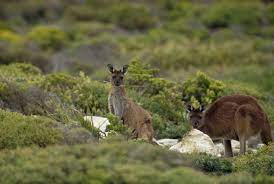
The Importance of Conservation
Conservation is the careful management and protection of natural resources to ensure their sustainability for future generations. It encompasses a wide range of practices aimed at preserving the environment, wildlife, and natural habitats.
One of the key reasons conservation is important is to maintain biodiversity. By protecting ecosystems and species from extinction, we help preserve the delicate balance of life on Earth. Biodiversity provides essential services such as pollination, water purification, and climate regulation that are vital for human well-being.
Conservation also plays a crucial role in mitigating climate change. Forests, wetlands, and oceans act as carbon sinks, absorbing greenhouse gases and helping to regulate the Earth’s climate. By conserving these natural habitats, we can reduce the impacts of global warming and protect vulnerable communities from extreme weather events.
Furthermore, conservation efforts help safeguard clean air and water supplies. Wetlands and forests filter pollutants from the air and water, improving overall environmental quality. By preserving these natural filters, we can ensure access to clean drinking water and reduce health risks associated with pollution.
In addition to environmental benefits, conservation contributes to economic prosperity and sustainable development. Ecosystem services such as crop pollination, soil fertility, and flood control have significant economic value. By investing in conservation practices, we can enhance agricultural productivity, support local livelihoods, and promote ecotourism opportunities.
Ultimately, conservation is essential for maintaining a healthy planet that can support current and future generations. Through collective action and responsible stewardship of our natural resources, we can create a more sustainable future for all living beings on Earth.
Six Essential Tips for Embracing Conservation and Protecting Our Planet
- Reduce, reuse, and recycle to minimize waste
- Conserve water by fixing leaks and using it wisely
- Use energy-efficient appliances and turn off lights when not in use
- Support local conservation efforts and organizations
- Plant trees and native plants to promote biodiversity
- Educate others about the importance of conservation
Reduce, reuse, and recycle to minimize waste
Reducing, reusing, and recycling are simple yet powerful ways to minimize waste and promote conservation. By reducing our consumption and choosing reusable items whenever possible, we can decrease the amount of waste generated in our daily lives. Reusing products or materials instead of disposing of them helps extend their lifespan and reduces the need for new resources. Recycling allows us to give new life to materials that would otherwise end up in landfills, conserving energy and raw materials in the process. Embracing the “reduce, reuse, recycle” mantra not only helps us reduce our environmental footprint but also contributes to a more sustainable and resource-efficient future for generations to come.
Conserve water by fixing leaks and using it wisely
Conserving water is crucial for sustainable living, and a simple yet effective way to do so is by fixing leaks and using water wisely. Even small leaks can waste significant amounts of water over time, so promptly repairing them can make a big difference in reducing water waste. Additionally, practicing mindful water usage, such as turning off the tap while brushing teeth or using a watering can instead of a hose for gardening, helps conserve this precious resource for future generations. By taking these proactive steps to conserve water, we can contribute to environmental preservation and ensure a more sustainable future for all.
Use energy-efficient appliances and turn off lights when not in use
Using energy-efficient appliances and turning off lights when not in use are simple yet effective ways to contribute to conservation efforts. Energy-efficient appliances consume less electricity, reducing overall energy consumption and lowering utility bills. By choosing these appliances, we can decrease our carbon footprint and help combat climate change. Similarly, turning off lights when they are not needed conserves energy and reduces unnecessary electricity usage. These small actions can make a significant impact on reducing energy waste and promoting a more sustainable lifestyle for a greener future.
Support local conservation efforts and organizations
Supporting local conservation efforts and organizations is a powerful way to make a positive impact on the environment and wildlife in your community. By contributing your time, resources, or expertise to these initiatives, you can help protect natural habitats, promote sustainable practices, and raise awareness about conservation issues close to home. Local organizations often work directly with community members and stakeholders to implement conservation projects that benefit both the environment and the people who live in the area. Your support can make a difference in preserving biodiversity, improving air and water quality, and creating a more sustainable future for generations to come.
Plant trees and native plants to promote biodiversity
Planting trees and native plants is a simple yet powerful way to promote biodiversity and support the environment. Trees provide essential habitats for a variety of wildlife, from birds to insects, helping to maintain healthy ecosystems. By choosing native plant species, we can attract pollinators and other beneficial organisms that contribute to the balance of local ecosystems. Additionally, planting trees and native plants helps improve air quality, reduce soil erosion, and enhance the overall resilience of our natural surroundings. Embracing this conservation tip not only beautifies our surroundings but also plays a significant role in preserving biodiversity for future generations.
Educate others about the importance of conservation
Educating others about the importance of conservation is a powerful way to inspire positive change and foster a culture of environmental stewardship. By sharing knowledge about the benefits of preserving natural resources and protecting biodiversity, we can empower individuals to make informed choices that contribute to a more sustainable future. Through education, we can raise awareness about the interconnectedness of all living beings and ecosystems, motivating people to take action in their daily lives to reduce waste, conserve energy, and support conservation efforts. Together, through advocacy and education, we can create a collective impact that helps safeguard our planet for generations to come.
